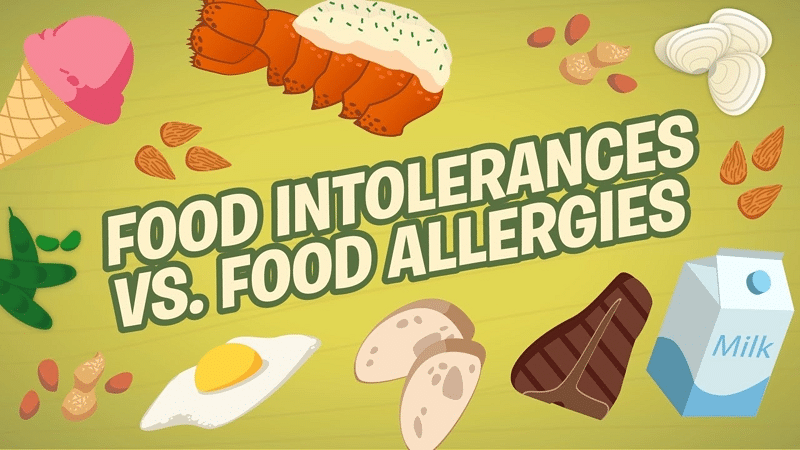Food allergies and intolerances are two different conditions that can cause discomfort or even serious reactions in some individuals. Understanding the difference between the two, their causes, symptoms and preventions can help individuals avoid exposure to harmful foods and lead to better health outcomes.
Causes:
Food allergies are caused by an overreaction of the immune system to certain proteins in food. The protein is identified as a foreign invader that may cause harm to the body, and an immune response is triggered. The result is typically immediate symptoms such as rash, swelling, itching, wheezing, shortness of breath or vomiting. In some cases, anaphylaxis, which is life-threatening, can occur.
Food intolerances, on the other hand, are not caused by the immune system but are due to an inability to digest certain types of food. This can lead to uncomfortable symptoms such as bloating, abdominal pain, cramping, diarrhea, or constipation.
Symptoms:
The symptoms of food allergies and intolerances can overlap, making it difficult to determine which one is the cause. However, the timing of the symptoms can help to differentiate the two. With food allergies, symptoms usually occur within minutes to hours of consuming the offending food, while with intolerances, symptoms may not appear until hours or even days later.
Preventions:
The best prevention for both food allergies and intolerances is to avoid the specific food or ingredients that trigger the reaction. For individuals with food allergies, it is important to read labels carefully, ask about ingredients in restaurant meals, and carry an epinephrine auto-injector in case of an allergic reaction.
For those with intolerances, identifying which foods cause symptoms and limiting or eliminating them from the diet is crucial. Keeping a food diary can be a helpful tool in identifying trigger foods. In some cases, taking digestive enzymes or probiotics can aid in the digestion of certain foods.
In conclusion, food allergies and intolerances can have significant impacts on an individual’s health and quality of life. Understanding the difference between the two, their causes, symptoms, and preventions can help individuals avoid exposure to harmful foods and lead to better health outcomes. If you suspect that you may have a food allergy or intolerance, it is important to seek medical advice for proper diagnosis and management.



